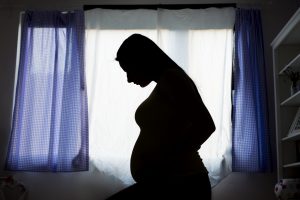Miscarriages are unseen tragedy to many eyes. For many, it is swept under the rug never to be spoken again or told to others. For others, it may be dismissed or devalued in regards to the hierarchy of losses. Still others may suffer alone, or others may be neglected. The harsh reality though is that it is a real and scaring loss that must be acknowledged and understood.
Unfortunately, many never find the help they need to deal with this type of loss. Others are dismissed. Disenfranchisement occurs because the child was not born and never seen. Others may lessen the value of the unborn child to an infant. Downplaying is very detrimental to healing in this regard. Furthermore, others may shift the grief away and utilize various cliches. For instance, one may say to the grieving, “well you can try again”, or “better luck next time”. This type of statement devalues the loss of the child that died and the present pain of the parents.
Sometimes, as well, only the mother will receive the support. Fathers, siblings, and grandparents may be neglected in their grief of the loss. It is hence essential to acknowledge the loss and discuss with all connected to the pregnancy. Secrecy, quiet and downplaying are not the answers.
Losing a child can have numerous consequences. Following a miscarriage, the woman will undergo physical and hormonal changes, as well as psychological effects. Loss of concentration, appetite and trouble sleeping can occur. A feeling of depression and loss can follow with various emotions of sadness, anger and even guilt. Some women feel an unearned guilt that they did not do enough to prevent the miscarriage. Others may feel angry at the unfair nature of not being able to carry a pregnancy and have a child.

Some families may suffer at different levels. A family trying to conceive and with no children may grieve differently than a family with many children. Other miscarriages may be far more painful due to the progression and time of the miscarriage. Some miscarriages can occur without the woman knowing she was even pregnant, while other miscarriages can occur well farther into the pregnancy and also require medical attention. Other times, the loss and pain may be correlated with spiritual beliefs regarding life itself.
Again, for a young teen girl, a miscarriage despite the trauma may be a relief. Although all life is beautiful, the thought of a young motherhood and the responsibilities with it incurred great fear and the miscarriage indirectly freed the young person from such things.
So, as one can see, how the loss is perceived, the surrounding details and the beliefs of the person can all play huge roles in grief factor of a miscarriage as well. In general though, those parents who are expecting, do not fall into this periphery categories and will suffer to some extent, some type of feeling of loss. For many, the potential of what could have been can haunt the parents. Mothers Day or Fathers Day can be vivid reminders of what could have occurred for those hoping to become parents.
It is important not to internalize and keep the loss a secret. Couples should discuss, and single women should find individuals they can confidently speak to. Some may require support groups or grief counseling to help process the loss itself.
For some parents, although no funeral is possible, a memory service can sometimes be performed, as well as possibly naming the child. Those from more religious backgrounds, may feel security knowing their child is in Heaven and looking down upon them. Others may merely process the loss, learn to understand the meaning of it and move forward looking to become pregnant again.
It is also important for the woman to care for herself after a miscarriage. Beyond the mental and psychological loss, a woman may need time to rest and allow her body to re-adjust to post pregnancy status.
Ultimately, it is important to realize that miscarriages are a common loss for individuals and couples for the most part receive improper care and counseling. Miscarriages are sometimes hidden and become a unresolved and disenfranchised grief. It is important to help others through the pain and loss of miscarriage. It is important to recognize the loss and give value to the loss. It is important to find meaning in the miscarriage and to understand one’s life plan and how the miscarriage falls into that plan.
If you would like to learn more about grief itself and the nature of loss, then please review The American Academy of Grief Counseling’s, Grief Counseling Certification Program and see if it meets your academic and professional goals. The program is online and independent study and open to qualified professionals seeking a four year certification in Grief Counseling.
Source:
Grief After a Miscarriage by Joanne Barker WebMD
